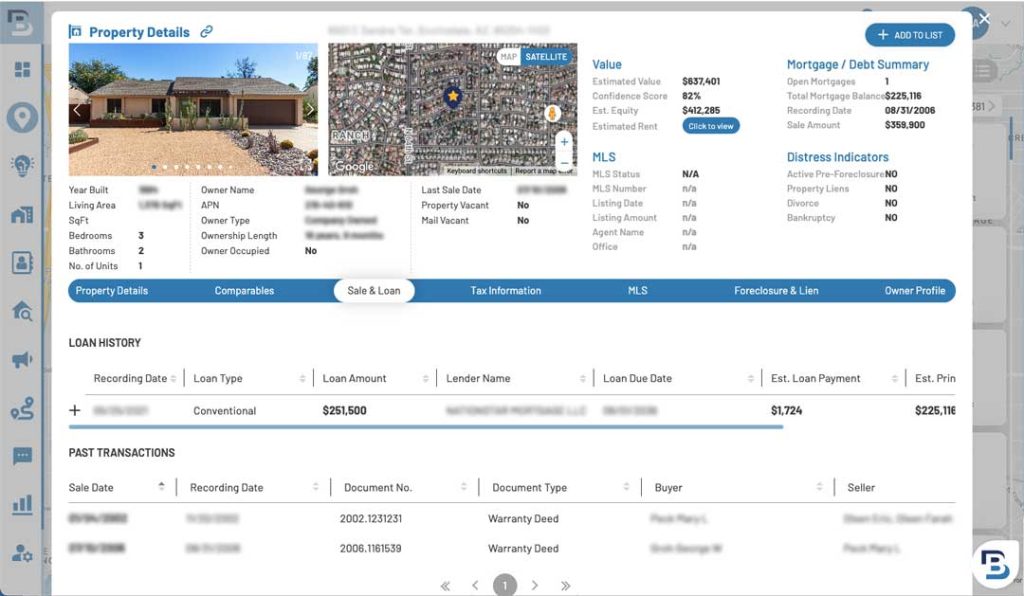As real estate continues to attract investors, there has been an increase in high volume transactions, high-speed transactions, and electronic property searches. It’s easy to understand why. If the conventional markets are getting saturated with competition, the options are to either move faster or go off-market. In the case of virtual wholesaling, the answer is both.
The ultimate goal for many wholesalers is to acquire properties in high volumes in order to maximize their profits and maintain a steady pipeline of investments. In today’s market, that can mean conducting virtual wholesaling deals. These are deals that execute quickly because there is no arranging face-to-face meetings or traveling to locations.
What is virtual wholesaling real estate?
The term “virtual wholesaling” might sound like a simulation or something that only exists online, but the deals are genuine, the property is real, and the profits to be made are substantial. This process is referred to as virtual wholesaling because the wholesaler conducts the transaction remotely and never actually visits the property.
What are the steps to virtual wholesaling?
To get started virtually wholesaling real estate, you need to know where to find and list properties. There are a few ways to accomplish this.
- Viewing the Multiple Listing Service (MLS) or Private Listing Network and making remote offers in bulk in the markets where you wish to invest, which requires a real estate license
- Finding potential properties that are not listed at all by using map tools and bringing them to market by tracing owner contact information and then persuading them to sell
- Using pocket listings or taking private deals directly to other investors, whether you are seeking their inventory or looking to sell your own
- Locating off-market properties and then marketing them to investors and other real estate professionals through the Private Listing Network, which requires a real estate license
Only licensed real estate professionals have access to the MLS, PLN, and other resources reserved for them. You can have an agent list for you, but bear in mind that this will introduce new costs. In wholesaling, one of the goals is to minimize expenses so that you can afford to offer investors properties at prices that they find attractive.
This is not to say that looking for properties on the MLS is a non-starter. There is an effective way that virtual wholesalers can find potential deals that just went on the MLS or are about to be listed there, and that’s by partnering with an agent.
While we mentioned above that one of the goals of wholesaling is to minimize expenses, partnering with an agent can be a lucrative strategy when handled properly. If you’re not sure how to approach an agent, transparency is always key. Have a clearly defined buy box when contacting them and let them know exactly what type of property you’re looking for. For wholesalers, that can mean distressed properties, pre foreclosures, or abandoned properties.
Another way you can use the MLS to your advantage is by looking for listings that are about to expire. Once the listings have expired, you can reach out to the homeowner to discuss wholesaling their property.
Which locations are best for virtual wholesaling?
While some virtual wholesalers opt to work in their home states, it’s common for virtual wholesalers to buy out of state and even on the other side of the country. When it comes to choosing a location, there are some criteria that can help you determine which market is right for you. Virtual wholesalers should look for:
- Areas that are experiencing growing population growth
- Areas with strong job growth and a diversity of local employers, as that can ensure that people will continue to move there
- Properties located in a desirable school district, as that always drives demand
Essentially, the same factors that drive demand for a traditional property will also drive demand for wholesale properties. The advantage of virtual wholesaling real estate is that without the constraints of visiting the property in person, you can pick the most hospitable markets in the country.
Is virtual wholesaling legal?
Virtual wholesaling real estate is subject to the same restrictions that apply to regular wholesaling. Unfortunately, there are restrictions to wholesaling without a real estate license, whether it’s done virtually or through in-person visits. The rules differ from state to state, but it is generally true that certain types of marketing and representation of a property owner are reserved for licensed professionals in each state.
Wholesaling real estate doesn’t require any special licensing, but you must check your state laws before engaging in sales activity. It’s usually fine to make a private direct sale, but if you do not have a license, it could be illegal to do any promotion at all to anyone outside of your existing social network. That restriction only exists in the strictest states, but the laws can vary significantly from one state to the next, so do some thorough research on the rules in each market where you intend to operate.
Pros and cons of virtual wholesaling
As with any trading technique, there are upsides and downsides to virtual wholesaling real estate. The most significant benefits are the ability to do more transactions in less time and the lowered costs of doing business due to not visiting properties. Here are a few other advantages that are less apparent:
- Investors can pursue multiple property types in widespread markets without driving up costs from site visits so you can invest in the hottest markets nationally
- Minimizes the labor per transaction even more than wholesaling already does when compared to other investment strategies
- Using a data platform for virtual wholesaling provides in-depth site photos of the exterior and neighborhood as part of the map search, as well as the owner contact information and the property’s buying history, making it easier to buy with confidence

So, what are the downsides? Probably nothing too surprising when you stop and think about how virtual wholesaling differs from traditional methods.
- Making offers virtually often means adopting a volume-oriented approach because finding off-market leads means convincing people to sell, and that kind of acquisition has always been about the numbers
- Without checking out buildings in person, you could accept an offer that’s too low because of features not seen in photographs
- If you’re a wholesaler who also rehabs and flips properties yourself, you might not be able to tell which properties are worth turning yourself based on photographs
- Extra care must be taken if you do not have a real estate license to operate within the constraints of local regulations when marketing properties virtually
Key takeaways
Virtual wholesaling real estate is a great way to conduct high-volume wholesaling activities in multiple markets. As with any form of investment, there are risks involved. Virtual wholesaling isn’t necessarily riskier per transaction, but the risk does stack as you increase your transaction volume, so that’s worth keeping in mind.
Still, understanding the laws in each jurisdiction where you buy and sell a property is crucial. If you intend to transact in high volumes in a certain state, obtaining a real estate sales license in that state will open up your opportunities and minimize risk. While that may sound like a major commitment, that could pay for itself in terms of the wholesaling revenue you’d generate from being licensed.



